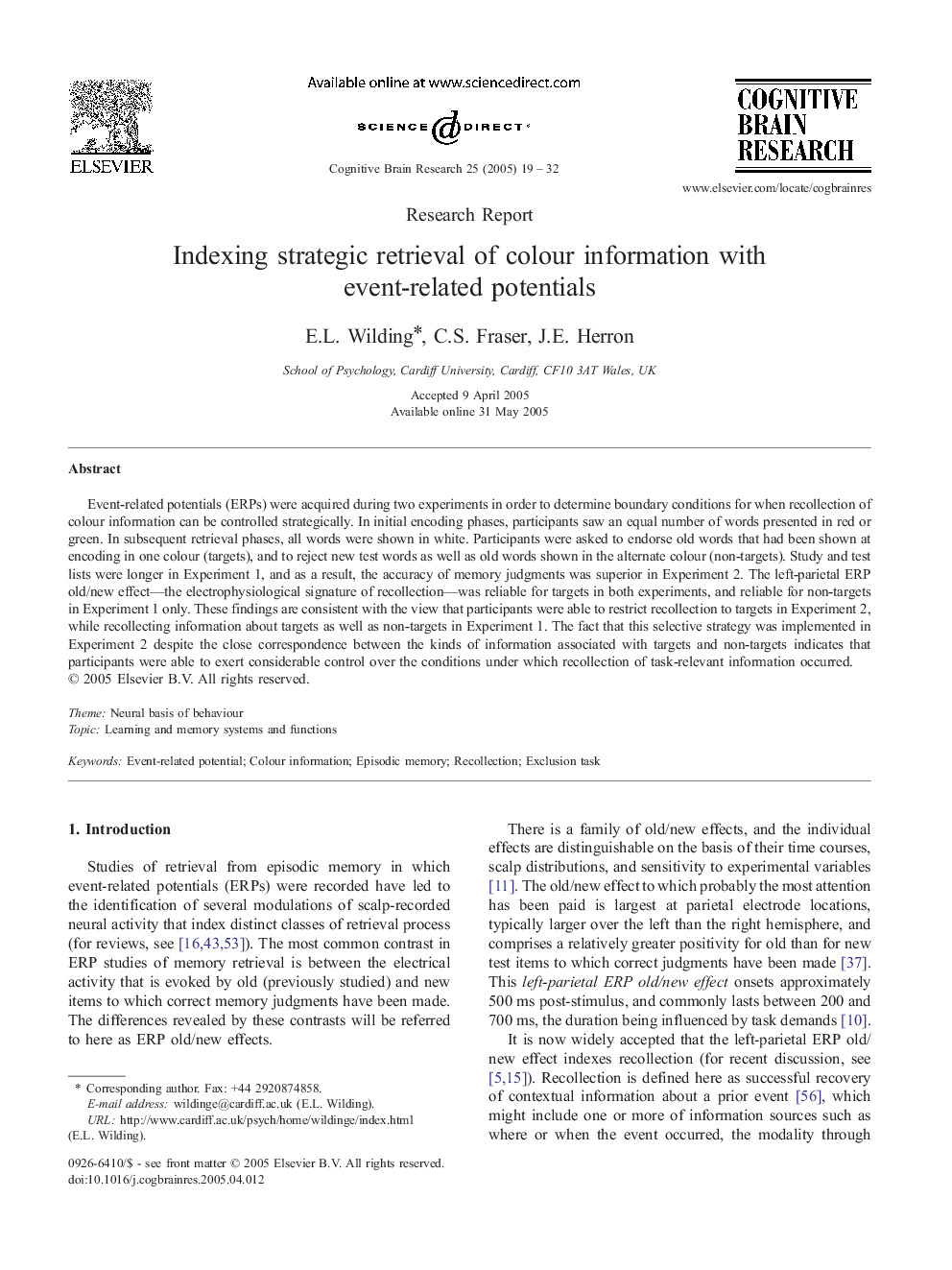| Article ID | Journal | Published Year | Pages | File Type |
|---|---|---|---|---|
| 9408051 | Cognitive Brain Research | 2005 | 14 Pages |
Abstract
Event-related potentials (ERPs) were acquired during two experiments in order to determine boundary conditions for when recollection of colour information can be controlled strategically. In initial encoding phases, participants saw an equal number of words presented in red or green. In subsequent retrieval phases, all words were shown in white. Participants were asked to endorse old words that had been shown at encoding in one colour (targets), and to reject new test words as well as old words shown in the alternate colour (non-targets). Study and test lists were longer in Experiment 1, and as a result, the accuracy of memory judgments was superior in Experiment 2. The left-parietal ERP old/new effect-the electrophysiological signature of recollection-was reliable for targets in both experiments, and reliable for non-targets in Experiment 1 only. These findings are consistent with the view that participants were able to restrict recollection to targets in Experiment 2, while recollecting information about targets as well as non-targets in Experiment 1. The fact that this selective strategy was implemented in Experiment 2 despite the close correspondence between the kinds of information associated with targets and non-targets indicates that participants were able to exert considerable control over the conditions under which recollection of task-relevant information occurred.
Related Topics
Life Sciences
Neuroscience
Behavioral Neuroscience
Authors
E.L. Wilding, C.S. Fraser, J.E. Herron,
